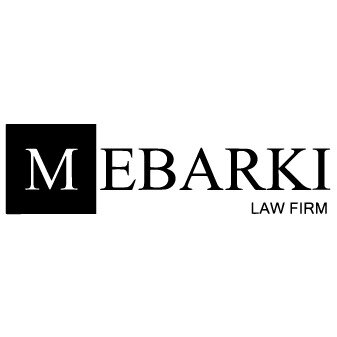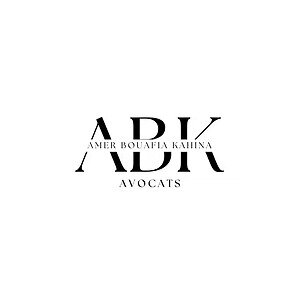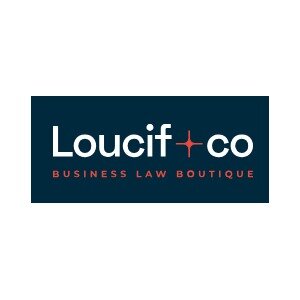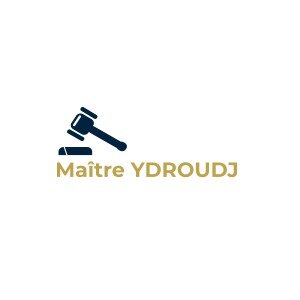Best Debt Capital Markets Lawyers in Algiers
Share your needs with us, get contacted by law firms.
Free. Takes 2 min.
List of the best lawyers in Algiers, Algeria
About Debt Capital Markets Law in Algiers, Algeria
Debt Capital Markets (DCM) refer to the financial sector where companies and governmental entities raise funds through the issuance of debt securities such as bonds, notes, and other instruments. In Algiers, Algeria, DCM plays a vital role in supporting infrastructure projects, corporate financing, and development initiatives. DCM transactions are carefully regulated, involve multiple steps, and require compliance with specific local legal frameworks. The Algiers debt market is evolving, with increasing participation from both domestic and international investors.
Why You May Need a Lawyer
Navigating Debt Capital Markets in Algiers can be complex due to strict regulatory requirements and the need for careful structuring. You may need a lawyer if you are:
- Seeking to issue corporate bonds or other debt instruments
- An investor interested in purchasing local government or corporate debt
- A company wishing to refinance existing debts or restructure liabilities
- An institution looking to list debt securities on the Algiers Stock Exchange
- Unfamiliar with disclosure, registration, or compliance procedures
- Facing disputes or breaches in bond covenants or terms
- Unsure about applicable tax or foreign investment rules
A lawyer experienced in Debt Capital Markets can guide you through legal documentation, regulatory filings, and negotiations, minimizing potential risks and ensuring conformity with local laws.
Local Laws Overview
DCM activities in Algiers are subject to a variety of legal requirements stemming from financial regulations and securities laws. The key regulatory authorities include the Commission d’Organisation et de Surveillance des Opérations de Bourse (COSOB) which oversees the securities market, and the Banque d’Algérie, which regulates certain aspects of the financial sector.
Violating disclosure or registration requirements can lead to regulatory penalties. There are also specific guidelines for foreign investors, currency movements, and anti-money laundering obligations. Public issuances of debt typically require prior approval and must be registered with the relevant authorities.
It is vital for issuers and investors to stay informed about periodic updates to DCM regulations, which may be issued to enhance market transparency, protect investors, and support financial system stability in Algeria.
Frequently Asked Questions
What are Debt Capital Markets?
Debt Capital Markets are platforms where entities raise funds by issuing and trading debt securities such as bonds and notes. These markets are essential for business financing and infrastructure development.
Who regulates the Debt Capital Markets in Algiers?
The primary regulator is the Commission d’Organisation et de Surveillance des Opérations de Bourse (COSOB), with the Banque d’Algérie also playing a significant role in financial sector oversight.
Can foreign investors participate in Algerian Debt Capital Markets?
Yes, but there are restrictions and procedures regarding currency exchange, repatriation of funds, and regulatory approvals that must be observed.
What types of debt securities can be issued in Algiers?
Typical debt instruments include government and corporate bonds, notes, and short-term commercial papers, all subject to regulatory approval and market conditions.
Is it mandatory to register a debt security before issuing it?
Yes. Registration with COSOB and, in some cases, with the Banque d’Algérie is required before a public offering of debt securities can take place.
What legal documentation is needed for issuing bonds?
Issuers typically prepare a prospectus, trust deed, and subscription agreements, among other documents. Each must comply with Algerian regulatory requirements.
What risks should investors be aware of?
Key risks include credit risk, interest rate changes, currency conversion restrictions, and regulatory amendments that may affect investment value or transferability.
How are disputes in Debt Capital Markets resolved?
Disputes may be handled through negotiation, arbitration, or litigation in Algerian courts, depending on the terms outlined in bond or investment agreements.
Are there tax implications for debt issuances?
Yes. Issuers and investors must consider local tax laws, including withholding taxes on interest payments and tax treatment of capital gains, which may affect transaction costs.
How can a lawyer assist in Debt Capital Markets transactions?
A lawyer advises on regulatory compliance, drafts legal documents, negotiates terms, ensures proper registration, and represents clients in disputes or regulatory matters.
Additional Resources
- The Commission d’Organisation et de Surveillance des Opérations de Bourse (COSOB): Albania’s main regulatory authority for securities.
- The Algiers Stock Exchange: For listing requirements and market information.
- Banque d’Algérie: The central bank overseeing financial regulations.
- Ministry of Finance: For updates on public debt policies, regulations, and fiscal incentives.
- Local legal associations and financial law firms with experience in capital markets.
Next Steps
If you require legal assistance in Debt Capital Markets in Algiers, it is important to:
- Gather all relevant documentation related to your debt issue or investment
- Identify your main objectives and any specific concerns you may have
- Consult with a licensed lawyer who specializes in capital markets in Algeria
- Request a preliminary legal assessment of your situation, including potential challenges and recommended actions
- Work with your lawyer to ensure full compliance with local laws and regulations during your transaction
Taking these steps can help simplify a complex process and safeguard your interests, whether you are issuing, investing in, or managing debt securities in Algiers.
Lawzana helps you find the best lawyers and law firms in Algiers through a curated and pre-screened list of qualified legal professionals. Our platform offers rankings and detailed profiles of attorneys and law firms, allowing you to compare based on practice areas, including Debt Capital Markets, experience, and client feedback.
Each profile includes a description of the firm's areas of practice, client reviews, team members and partners, year of establishment, spoken languages, office locations, contact information, social media presence, and any published articles or resources. Most firms on our platform speak English and are experienced in both local and international legal matters.
Get a quote from top-rated law firms in Algiers, Algeria — quickly, securely, and without unnecessary hassle.
Disclaimer:
The information provided on this page is for general informational purposes only and does not constitute legal advice. While we strive to ensure the accuracy and relevance of the content, legal information may change over time, and interpretations of the law can vary. You should always consult with a qualified legal professional for advice specific to your situation.
We disclaim all liability for actions taken or not taken based on the content of this page. If you believe any information is incorrect or outdated, please contact us, and we will review and update it where appropriate.











